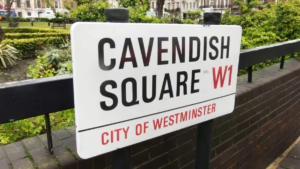After inflation surpassed typical pay settlements, in April, pay awards could be reduced for “a prolonged period”. This is the first time in 19 months that all three measures of inflation have exceeded the median award.
Today, the Office for National Statistics published the inflation figures for the month of April. The Consumer Prices Index (CPI) for the year ending in April increased from 2.6% to 3.5%.
The CPIH, which includes owner-occupiers housing costs, increased from 3,4% to 4,1%. Meanwhile, the retail prices index, the preferred measure of the trade unions, rose from 3,2% in March, to 4,5% in April.
Brightmine released new data today that analysed 136 awards of pay from employers for the three-month period ending in April. The median award remained at 3% for the fifth month running. The data includes pay review results for over 309,000 UK employees.
Brightmine, however, said that there were signs of a softening in pay settlements, with nearly half of all awards falling below 3%.
Sheila Attwood is the HR insights and data leader at Brightmine. She said: “The increase in CPI inflation in September saw a turn-around in fortunes for workers, with price increases outpacing pay increases for first time since Sept. 2023.
The inflation rate is not expected to reach its peak until the third-quarter of this year. All signs point to pay increases remaining at the current 3% level or even falling. A prolonged period in which real pay falls is likely.
The Bank of England and experts had predicted that CPI inflation would increase in “Awful May”, but the 3.5% figure, which was mainly driven by higher food, utility and vehicle prices, exceeded most forecasts of 3,3% or 3.4%.
Brightmine said that last month’s increase in employers’ national insurance contributions and other costs had placed fresh strain on pay decisions, despite positive news showing that the economy grew by 0.7% in the winter, a stronger-than-expected rebound after months of stagnation. This growth has not yet been reflected in the pay results and could be hiding “broader economic fragility”.
Attwood said: “April’s numbers are crucial in setting the tone of pay agreements throughout the year. While the latest economic data shows signs of growth the subdued pay settlement pattern indicates that many employers are still cautious in their wage decisions, despite the ongoing cost pressures which will continue throughout the second half year.
Pay awards are stable but many businesses opt for lower increases and our headline median may fall in the months to come.
In line with the general trend, the private sector reported a median award of 3% for the 12 months ending April 2025. The public sector, however, recorded a higher median at 5% due to earlier agreements made in the pay cycle.
Brightmine (formerly XpertHR) said that initial indications indicate that settlements for the public sector in 2025 are likely to be more aligned with those of the private sector.
A matched analysis of the entire economy found that 78% pay agreements were lower than last year’s, and only 3% higher. One out of every 20 agreements was a pay freeze.
The ONS reported last week that the annual growth rate of the average regular wage (excluding bonuses) for employees in the three-month period up to March 2025 was 5.6%. The ONS reported that the average regular earnings of employees (excluding bonuses) grew by 5.6% annually in the three months to March 2025, a decrease from the previous month’s figure of 5.9%. This is the lowest number since November.
The Office for Budget Responsibility, in its March forecasts that were released along with the Spring Statement of 2025, predicted that CPI would rise to 3.7% by the third quarter before it began to decline.
Paul Nowak, general secretary of the TUC, said that today’s inflation rise – caused by higher water and energy bills – was painful but not surprising. Bank of England should continue to reduce interest rates and ease pressure on the households. The high rates have already slowed down growth and hurt businesses. “Lowering the rates will help people spend more in their local economy and put more money into their pockets.”
Subscribe to our weekly HR news and guidance
Every Wednesday, receive the Personnel Today Direct newsletter.



